Energy Alternatives for an Asphalt Production Site

Reducing the CO2 emissions and optimizing the energy consumption in asphalt production. Alternative Energies will help to reduce the CO2 footprint of an asphalt production site. Asphalt production nowadays is mainly driven by the usage of fossil high-density fuels. Asphalt production companies are seeking for alternative solutions to make the production of asphalt much more sustainable. Moreover, the recycling of old asphalt harvested from used roads needs to be considered as well. News. A visit to Implenia site in Ecublens (VD) was performed to learn more about the asphalt manufacturing process and plant operation features. This recently overhauled plant is equipped with new technologies that aim at plant efficiency and therefore sustainability while improving productivity. This includes efforts to increase energy savings and reduce environmental impacts, improve plant versatility to better meet individual customer requirements and increase use of recycled asphalt in mixtures. The visit provided a good overview of the process requirements and pointed out current limitations and possible improvements areas for higher efficient and cleaner processes, some of them to be tackled in this project. Targets. The following questions should be addressed by this project: How can we run an asphalt production site with the minimum amount of fossil high-density fuels? How can we increase the thermal efficiency of such a plant? How can we increase the amount of recycled asphalt in the whole production process? Initial situation. Implenia as one of the project partners is seeking for optimized design solutions as they plan to overhaul existing Swiss production sites. Contact. Sara EicherUniversity of Applied Sciences and Arts Western Switzerland, HEIG-VDsara.eicher@heig-vd.ch Pierre RazurelImplenia Suisse SApierre.razurel@implenia.com
White Paper: Circular Economy Business Models
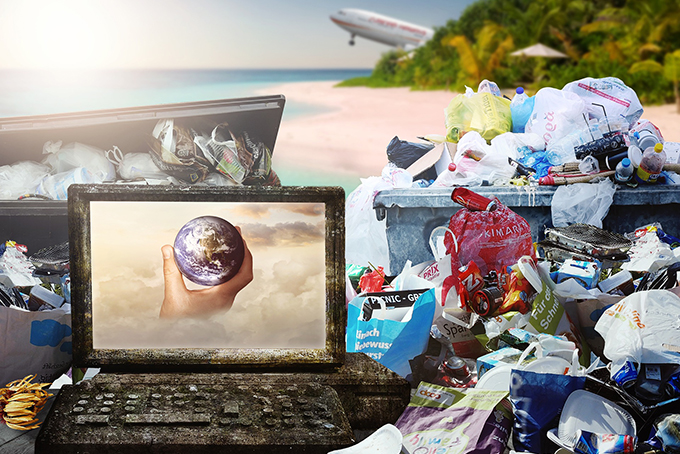
Adapting Business Models to a Changed Global Agenda Economic performance in the secondary sector is characterized by a linear value creation model: extraction of raw materials - production of goods - use of goods to satisfy needs - disposal. This model is proving to be unsustainable in several respects. The one-time use of resources depletes their stock. At the same time, the disposal process harms the planet as a producer of resources, which limits the possibilities for satisfying future needs. Circular economy is based on an alternative resource flow, a cyclical model that promises sustainable and long-term satisfaction of needs. The circular economy also offers companies the opportunity to improve the availability of resources, strengthen brand value and stakeholder engagement and tap into new markets and business opportunities. The various aspects will be presented in a white paper. The content will serve as food for thought for future joint activities by the participants of the Sustainable Business Lab. Project status 90% Objectives (1) Definition of circular economy(2) Preparation of processes and design principles(3) Overview of value creation opportunities and business models(4) Discussions and further activities as part of the Sustainable Business Lab Results White paper Contributors Melissa Kneubüher, Innovationspark Zentralschweiz
SDGs: Business Model Impact
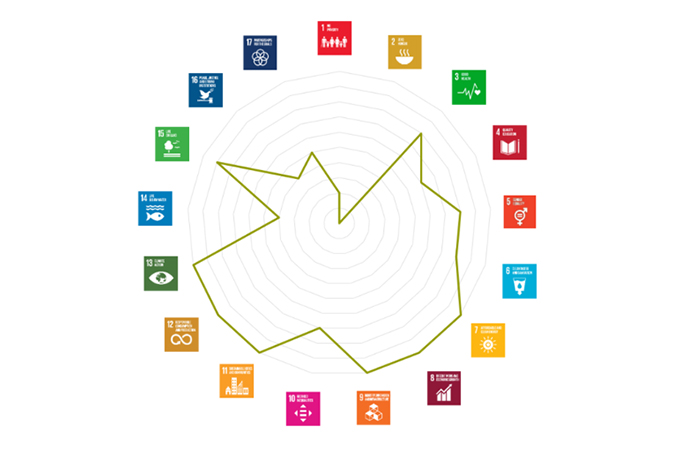
Recognizing the impact of the business model on the Sustainable Development Goals (SDGs) In September 2015, the UN General Assembly adopted the 2030 Agenda for Sustainable Development. The agenda comprises 17 Sustainable Development Goals (SDGs) and 169 sub-goals. Globally, the SDGs form the only common framework for sustainability efforts. Business, science and the public sector all play a role in their implementation. For companies in particular, however, understanding the impact of their business model on the SDGs offers added value. On the one hand, this can minimize risks and strengthen their own responsibility, while on the other hand it opens up new business opportunities. Using two example cases from the Building Excellence environment, participants of the Sustainable Business Lab tested and further developed approaches for analyzing their own business model across the entire value chain as part of a workshop. The workshop was conducted in collaboration with Swiss Triple Impact, the national program of B Lab Switzerland. Project status 100% Objectives (1) Develop an understanding of the SDGs(2) Raise awareness of the impact of your own business model on the SDGs(3) Provide methodology/tools for your own analysis (e.g. SDG spider (see image above)). SDG Spider (see image above), SDG Action Manager from B Lab) Results (1) Joint analysis of two example cases (InnoConstruction AG / ExcellenceFactory AG)(2) Individual, internal company analyses Participants Swiss Triple Impact (STI) / B Lab Switzerland, HHM Group, Strüby Konzept AG, Swissmem, Zehnder Group, V-ZUG AG, Lucerne University of Applied Sciences and Arts, Rapperswil University of Applied Sciences / WERZ
Pay-per-use in the residential environment
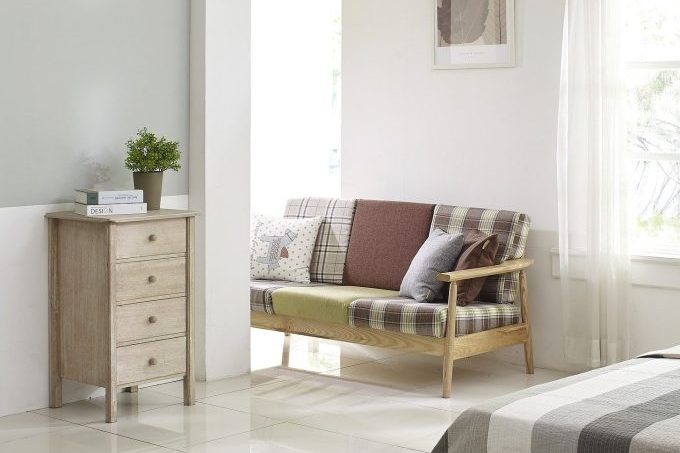
Sustainably meeting changing needs in the living environment Needs in the living environment change over time, depending on the personal life situation. What innovative business models are there to meet changing needs? One approach that has become established in other sectors is pay-per-use. Here, no products are sold, but services are charged according to usage. For example: number of pages printed vs printer, number of coffees brewed vs coffee machine, amount of compressed air used vs compressed air system, etc. This allows users to access infrastructure flexibly without having to purchase it themselves. These business models have the potential to play a pioneering role in terms of sustainability. Long-lasting products become a competitive advantage and incentivize the development of low-consumption products, as these costs are often borne by the provider. But are such models even in demand in the living environment? What are the technological possibilities? Project status 100% Objectives (1) Definition of new business models and validation by means of a survey(2) Creation of a concept with several trades that is attractive for investors, users and manufacturers Results (1) Survey results with 273 participants (corresponds to a very good response rate)(2) Documentation of the findingsThe practical implementation of the findings is carried out individually and company-specifically by the participating companies. Methodology - monthly sprint workshops lasting ½ day each for eight months - external moderation by ITZ Innovation Transfer Central Switzerland Project team Erich Obrist, ITZ Innovation Transfer Central Switzerland (moderator)Reto Herger, ewl energie wasser luzernTim Weingärtner, University of Lucerne Information TechnologyAlessandro Buriola, Otto Fischer AGStephan Grüter, thingdust AGAndri Nicolai, TROX HESCO Schweiz AGAndreas Bittig, V-ZUG AGLukas Muggli, V-ZUG AGBeat Sidler, V-ZUG AGErcan Yapalak, Zehnder GroupMatthias Schwander, Zug Estates AG
Activities Sustainable Business Lab.

Round Table: Circular Economy for builders, general contractors, general contractors Zoom, September 1, 2020 How can builders, general contractors and general contractors get started with the circular economy? What to look out for in tenders? What best practices are there? And where are we today or where do we want to be in the future? In three short inputs, Enrico Marchesi (NEST), Marloes Fischer (Madaster) and Olivier de Perrot (SALZA) presented current opportunities and developments on the topic. Around 20 participants then discussed the opportunities and challenges as well as the ecosystems required. There was a unanimous decision to hold a follow-up round to discuss individual points in greater depth. Workshop: Exploring Circular Economy Business Models Rotkreuz, 13 August 2020 Economic performance in the secondary sector is characterized by a linear - often only partially sustainable - value creation model. The circular economy can benefit people, the environment and the economy at the same time. In a half-day workshop, the Sustainable Business Lab therefore invited participants to get to know the various facets of the circular economy and explore possible business models. Together, we looked at core processes, recycling approaches, product-service systems and other value creation opportunities. The discussions were intensive and differentiated. Many thanks to Swiss Triple Impact and milani design & consulting for the collaborative workshop design! Lab Session: Materiality & Narratives Zoom, April 29, 2020 SDGs No. 9 (Industry, Innovation & Infrastructure), No. 11 (Sustainable Cities & Communities), No. 12 (Responsible Consumption & Production) and No. 13 (Climate Action) proved to be particularly relevant in terms of building excellence. They form a good common denominator and offer open innovation potential. In a two-hour webinar, the Lab participants discussed how products, services and business models can contribute to achieving the SDGs. The focus was on materiality. So-called "low-hanging fruits" were identified through an impact/effort assessment. In addition, narratives for the buy-in of internal stakeholders were discussed. The webinar was held in collaboration with Swiss Triple Impact, the national program of B Lab Switzerland. Sustainable Business Lab: Kick-Off Rotkreuz, March 12, 2020 Transforming our world - this was the title of the global Agenda 2030 with 17 Sustainable Development Goals (SDGs) adopted by the UN General Assembly in September 2015. These include goals such as sustainable consumption and production patterns, sustainable management of natural resources and measures to combat climate change. The European Commission also presented the Green Deal just in time for the new year. The plan includes both market-promoting initiatives and regulations for a circular economy. The consequence? Business practices must be fundamentally changed and business models rethought. At the Lab Kick-Off on March 12, 2020, representatives from business and science worked together to lay the foundations for corresponding innovations. The kick-off was held in collaboration with Swiss Triple Impact, the national program of B Lab Switzerland. Open House: Circular Economy in the construction industry. Rotkreuz, January 23, 2020 As part of the popular Open House series, Marloes Fischer, Founder/CEO of the Circular Hub and President of Madaster Switzerland, presented the latest approaches to the circular economy. The key message: circularity is not the same as recycling! It's about preserving the value of products as the sum of their components for as long as possible before the individual parts are recycled. As a use case in the area of circular economy, Marloes presented the Madaster material passport, which turns "waste" into valuable resources. Representatives from Zug Estates, V-ZUG, Roche, Drees & Sommer and other companies discussed possible projects to drive sustainable business forward. Swissbau: Every building is a material depot. Basel, January 15, 2020 Swissbau Focus, the relevant meeting place for decision-makers and experts from business and politics, focused this year on climate change, resource scarcity, migration and immigration in urban agglomerations, among other topics. The Swiss Society of Engineers and Architects (SIA) and the Swiss Association of Consulting Engineers (usic) hosted a panel discussion entitled "New working models, new fields of activity". Brigitta Schock from buildingSMART pleaded for the responsible use of (building) raw materials. "Every building is a material depot", she said - exactly in the spirit of the Sustainable Business Lab! BE!conference: Cradle to Cradle. Rotkreuz, October 2, 2019 At the BE!conference 2019, 120+ invited guests from the construction, building and IT sectors dedicated an afternoon to the topic of "Ecosystems". Jürgen M. Volm from Drees & Sommer gave an exciting insight into the cradle-to-cradle concept. In times of limited resources, it is becoming a matter of survival for companies to design their own products in such a way that they also function in a circular economic system. The tools used for this include pre-screening existing products, professional certification of C2C products and setting up circular process chains. What is needed is a change in perspective and cooperation in order to shape change together.
V-ZUG
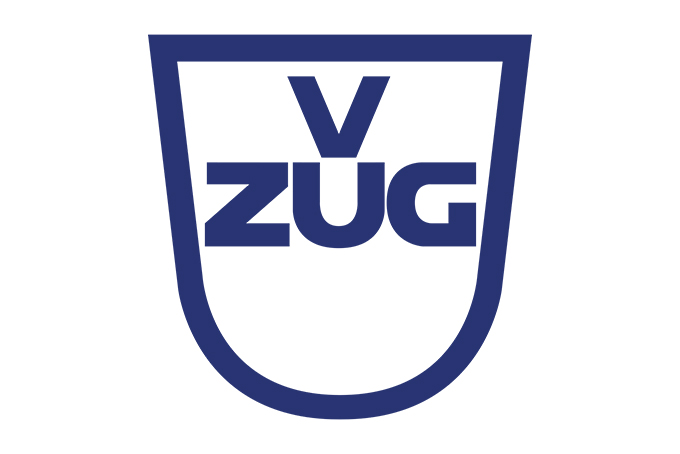
V-ZUG makes everyday life easier with high-quality, innovative household appliances. Whether for cooking, dishwashing or washing: If you expect more than standard, V-ZUG is the right place for you. Switzerland is a key location. In order to continue researching, developing and producing successfully in Switzerland, V-ZUG is making the site fit for the future. By 2033, a new district will be built on its site, which will strengthen the company, Zug as an industrial location and Switzerland as a production location. The concept of sustainability is firmly anchored at V-ZUG - in its vision and strategy, but also in its corporate culture. The responsible use of natural resources, employees and society is of central importance. V-ZUG makes a contribution to a functioning future; to a world in which scarce resources are taken care of, in which people can develop and companies can achieve great things. To this end, V-ZUG operates an Innovation LAB in the Central Switzerland Innovation Park. Together with the local ecosystem, it is coming a step closer to its vision and proactively helping to shape the future. www.vzug.com Stephan Keller CTO stephan.keller@vzug.com 058 767 67 38
Sustainable Business Lab

Kick-Off Countdown Are you in? DaysHoursMinutesSeconds Designing for the Triple Bottom Line. What does sustainability mean for you and your company? How can people, planet and profit - the triple bottom line - be reconciled? And what if the whole thing could also be a lot of fun? The activities of the Sustainable Business Lab are based on the Sustainable Development Goals (SDGs) of the United Nations and tie in with concepts such as circular economy, cradle-to-cradle, blue economy and industrial ecology. Together, we want to tackle the sustainable design of products, business processes and business models relating to buildings, sites and ecosystems in the spirit of open innovation. The benefits? You secure your own supply of resources for the future, strengthen the resilience of your institution, can positively influence the commitment of important stakeholders and open up new business opportunities. Interested in getting involved? Then take the opportunity to help shape the lab together with like-minded people. We look forward to your project ideas! Register now for the kick-off on March 12, 2020. Activities & projects. Events 80% Project ideas 59% Collaboration 72% Open House: Circular Economy in the construction industry. Rotkreuz, January 23, 2020 As part of the popular Open House series, Marloes Fischer, founder/CEO of the Circular Hub and President of Madaster Switzerland, presented the latest approaches to the circular economy. The key message: circularity is not the same as recycling! It's about preserving the value of products as the sum of their components for as long as possible before the individual parts are recycled. As a use case in the area of circular economy, Marloes presented the Madaster material passport, which turns "waste" into valuable resources. Representatives from Zug Estates, V-ZUG, Roche, Drees & Sommer and other companies discussed possible projects to drive sustainable business forward. Swissbau: Every building is a material depot. Basel, January 15, 2020 Swissbau Focus, the relevant meeting place for decision-makers and experts from business and politics, focused this year on climate change, resource scarcity, migration and immigration in urban agglomerations, among other topics. The Swiss Society of Engineers and Architects (SIA) and the Swiss Association of Consulting Engineers (usic) hosted a panel discussion entitled "New working models, new fields of activity". Brigitta Schock from buildingSMART pleaded for the responsible use of (building) raw materials. "Every building is a material depot", she said - exactly in the spirit of the Sustainable Business Lab! BE!conference: Cradle to Cradle. Rotkreuz, October 2, 2019 At the BE!conference 2019, 120+ invited guests from the construction, building and IT sectors dedicated an afternoon to the topic of "Ecosystems". Jürgen M. Volm from Drees & Sommer gave an exciting insight into the cradle-to-cradle concept. In times of limited resources, it is becoming a matter of survival for companies to design their own products in such a way that they also function in a circular economic system. The tools used for this include pre-screening existing products, professional certification of C2C products and setting up circular process chains. What is needed is a change in perspective and cooperation in order to shape change together. Further activities & projects. read more ... Lab Team. Aline Buschauer Aline Buschauer Internal E-MAIL +41 41 531 13 23 Sem Mattli Sem Mattli ManagingDirector E-MAIL +41 41 531 13 21 Melissa Kneubühler Melissa Kneubühler InnovationCoordinator E-MAIL +41 41 531 13 20 Gianni Bomio Gianni Bomio Legal Expert & Host Sustainable Development Goals (SDGs). Link & literature tips. Introduction to the Circular Economy (Website).Ellen MacArthur Foundation. 2020. The Circular Economy: A User's Guide (Book).Walter R. Stahel. 2019. Circular Economy Business Case, CFO Perspective. (Article).World Business Council for Sustainable Development. 2019. The Relevance of Circular Economy Practices to the SDGs (Article).Patrick Schroeder, Kartika Anggraeni & Uwe Weber. 2018. Circular Advantage (Publication).Accenture Strategy. 2014. remanufacturing & refurbishment. (Publication).The Collaborative Project. (n.d.) Would you like to get involved in the Sustainable Business Lab? Then get in touch! Contact Melissa KneubühlerInnovationskoordinationmelissa.kneubuehler@building-excellence.ch041 531 13 20
Train Estates
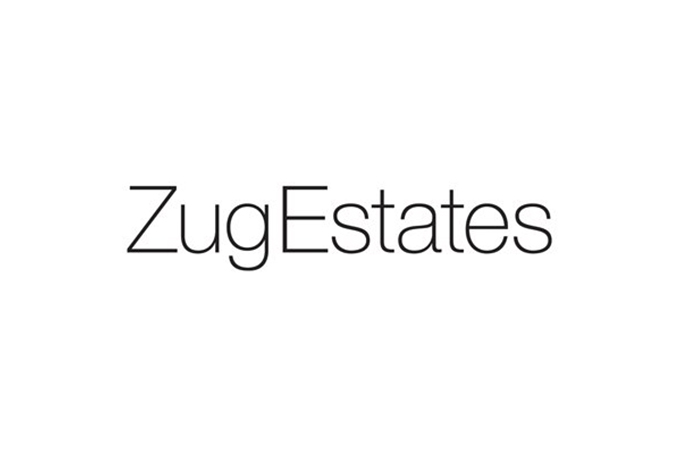
The Zug Estates Group designs, develops, markets and manages properties in the Zug region. It concentrates on centrally located sites that enable a wide range of uses and sustainable development. The real estate portfolio consists of the Zentrumsareal/Metalli Zug site and the Suurstoffi Rotkreuz site, which are developed in line with strategically defined sustainability principles in the areas of energy, emissions, materials, outdoor space and mobility. Important milestones in this exemplary site development include a CO2-free energy system at Suurstoffi, the construction of Switzerland's first timber high-rise buildings, the implementation of a self-consumption community and building with BIM, where Zug Estates has already won the Arc Award twice in the "BIM - Innovation" category. www.zugestates.ch Philipp Hodel Head of Corporate Communications philipp.hodel@zugestates.ch 041 729 10 36